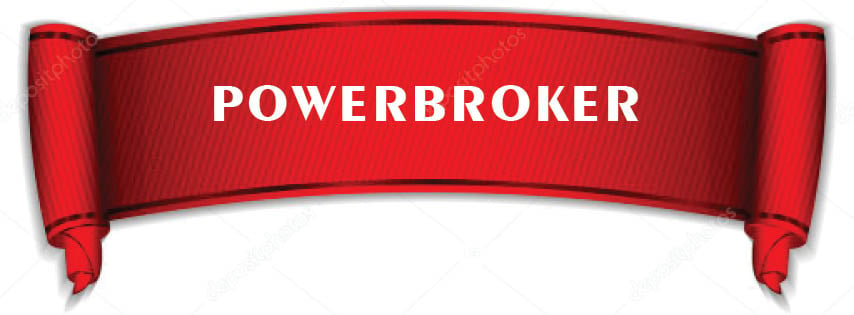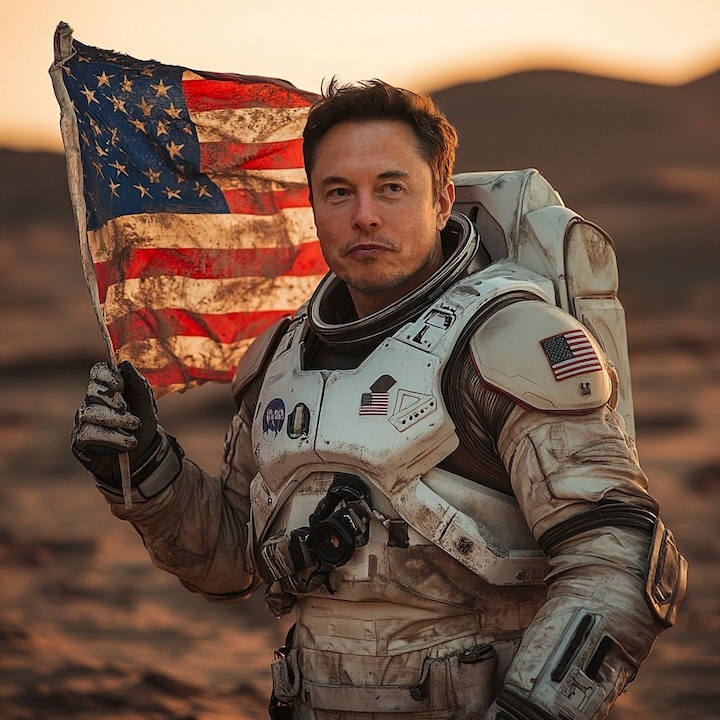Canada’s Prime Minister Justin Trudeau warns U.S. President Donald Trump isn’t joking about annexing Canada. At the Canada-US Summit he convened in Toronto, Trudeau was caught on hot a mic calling the United States’ intention to annex Canada “a real thing.”
I suggest that not only does the Trump administration know how many critical minerals we have, but that may be even why they keep talking about absorbing us and making us the 51st state.
Digitally, the PM strikes the party line: “There isn’t a snowball’s chance in hell that Canada would become part of the United States,” though in back channels in Washington theres a thought experiment under way. Former White House Chief Strategist Steve Bannon appeals to policymakers on Canada’s Global News: “Geo-strategically, you don’t really have an option but to join the US if you want your sovereignty. From the north, from the Arctic, it’s going to get encroached in a great power competition that you don’t have the ability to win.” The U.S. Defense Department on Arctic Strategy explains why:
Canada and Greenland are key from the perspectives of global competition, shipping, missile defense and space. Russia and China have military and commercial activities in the Arctic which vastly exceeds the United States.
According to the US Department of Energy, “Canada’s critical minerals are essential for technologies that produce, transmit, store and conserve energy.” Canada’s critical minerals compensate for threats to a global supply chain of smartphones, laptops, electric vehicles, charging stations, wind turbines, solar panels, semiconductors, telecommunications and satellites.” China – a key supplier of several critical minerals to global markets – has been increasing restrictions on its exports as part of an ongoing trade war with the US.
The Trump Administration has also focused on Greenland, a vast Arctic island with massive resource potential. Like Canada, unfettered access to Greenland’s critical minerals gives Washington supply chain security; limits any leverage China could possibly bring to bear; and does so from a unique, perhaps even critical communications outpost to the next American frontier.
The Naval War College observes: “If you want to be a powerful space-faring nation; able to project space power in terms of ISR (intelligence, surveillance, and reconnaissance); you’ll need infrastructure in the Arctic and Antarctic Circle to seamlessly communicate and control all of your satellites.”
But “Greenland is not for sale,” says prime minister Mette Frederiksen. An autonomous territory of Denmark since 1814, their annual $500 million (£407 million) stipend is about to get a windfall, too. The Danish government has announced an unprecedented boost in defense spending. The $1.5 billion (£1.2bn) announcement described as an “irony of fate” will produce more dog sled teams, new inspection ships, several long-range drones, and upgrade civilian airports to accommodate F-35 supersonic fighter aircraft. The thinner the ice, the more anxious we become to see if it will bear.
"Irony is Fate's most common figure of speech."
The Arctic is no longer a fortress wall or protective moat, but a rather convenient avenue of approach. Soliciting foreign investment is a conundrum; melting ice caps giving way to Chinese merchant shipping in GUIK is of concern; and the race to ISR control in Greenland will be game, set and match for whomever gets their first.
In the wake of the American Civil War, the U.S. began looking to expand its influence in the Arctic. US President Andrew Johnson’s naked and vast geopolitical ambition snaps up Alaska (1867); US President William Taft tries to swap Greenland for the Philippines (1910); FDR ensures via Article X “the right to a military presence in Greenland for as long as is deemed necessary;” and US President Harry Truman clumsily offers $100 million to purchase Greenland from Denmark (1946). Denmark joins NATO in 1949, and under the Danish and American flags the Pituffik Space Base has been a command center for intelligence in the Arctic ever since. Today, it is home to the United States Space Force.
On 8 January 2025, President-elect Donald Trump refused to rule out military or economic force to take over Greenland; on 12 January, Vice President-elect JD Vance repeatedly stated that “controlling Greenland is critical for U.S. national security;” and on the eve of the inauguration on 14 January the US Secretary of Defense-elect Pete Hegseth stated, “I will not provide details in a public forum regarding the potential military force to integrate Greenland.” All campaign promises coalesced into an official statement by the President on 21 January from the Oval:
The people of Greenland are not happy with Denmark, you know, I think they’re happy with us. Greenland is necessary not for us, it’s necessary for international security. You have Russian boats all over the place, you have Chinese boats all over the place, warships, and they [Denmark] can’t maintain it. I’m sure that Denmark will come along.
The “Make Greenland Great Again Act” is an executive order that authorizes the US President to enter into negotiations with the Kingdom of Denmark to secure the acquisition of Greenland by the United States, but the “Red, White, and Blueland Act” of 2025 authorize President Trump to "purchase or otherwise acquire Greenland and to rename the island "Red, White and Blueland.”
At a press conference in early 2025, pro-independence Greenland’s Prime Minister Múte Bourup Egede said "work has already begun on creating the framework for Greenland as an independent state,” and hinted that an independence referendum could take place in tandem with a forthcoming general election in April 2025. “Greenland is not for sale. We don’t want to be Danish. We don’t want to be American.”
No great power in history has proven they can go it alone, indefinitely. Taking possession of Canada or Greenland, by hook or by crook, is unlikely to change this for either side. That title will go to the entities controlling AI and satellite technology, particularly ISR, supplanting government with tech corporations, perhaps even private individuals on the world stage.
According to the Harvard-Smithsonian Center for Astrophysics, there are approximately 10,000 operational satellites in orbit. Exactly 6,994 are owned and controlled by Starlink, a subsidiary of Space X, a private company owned exclusively by the richest man in the world.
As Trump signs yet another executive order this week instructing the “heads of agencies to coordinate and consult with Elon Musk’s DOGE to shrink the size of the federal workforce and limit hiring to essential positions,” over 65,000+ federal employees have already drank the Kool-Aid. "The people voted for major government reform and that's what the people are going to get," Musk said along side President Trump in the Oval. ”They're going to get what they voted for.”
“Transparency is what builds trust,” Musk said of DOGE’s social media campaign, seeming unaffected by the irony that he now oversees agencies which oversee his companies. A confidential disclosure form is what stands between this ‘unpaid special government employee’ whose gained access to 15 government agencies; put the finger on 17 inspectors general; and triggered a "widespread reduction in force" among 3 million federal workers.
A theoretical showdown is brewing between the executive and judicial branch, albeit in a larger geo-political context he’s rather quickly learnt to navigate. What if the opportunity to save our world had past; what if the critical minerals in the Global North we’re the Earth’s only lifeline; and what if as Musk declared on X: “Mars will be called the new frontier, just as America was called in past centuries.”
According to the Proceedings of the National Academy of Science, “Earth will not become uninhabitable for humans for another 1.3 billion years. However, large swaths of coastal areas will become uninhabitable for 3 billion people by 2070.” The irony of a pure, presently stateless realm lies not within a trust or predestination of one man, but rather in the providence and fate of them all.








